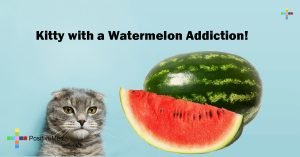Although people without this feature are still beautiful, cute little dimples on both cheeks are considered a sign of beauty. You might have thought that cheek dimples are something special that only unique people could have. Although you are not entirely wrong, one study confirms that about 20% of the world’s population has cheek dimples on both sides of the cheek. Regardless, there are several things you probably do not know about cheek dimples such as:

Dimples are a deformity of facial muscles
Although dimples are recognized globally as a sign of attractiveness and beauty, they are actually a result of a facial muscle deformity. As unlikely as it may seem, there are people obsessed with dimples, most of whom undergo surgery to create this deformity. As tempting as it could be, you should never try to get artificial dimples.
A dimple-making machine actually exists
As we have mentioned above, some people are desperate to have dimples on their cheeks. As a result, someone actually thought it through and invented the dimple-making machine. Had she patented the machine, this lady probably would have made a fortune by now. Isabella Gilbert’s obsession with dimples took her so far such that she invented the dimple-making machine back in 1936. This spring-loaded contraption uses a pair of knobs to apply pressure onto the cheeks to give the desired appearance.
Dimples are not the source of eternal youth
Dimples on the cheeks are generally associated with toddlers and babies. This association is the reason we always think of a cute baby every time we see someone with dimples on their cheeks. It almost feels like such people never get old. However, it is all a mind game and all the more reason why they are referred to as the source of eternal youth.
RELATED ARTICLE: Moles: What They Are & What To Do About Them
According to some cultures, dimples are a source of luck
The belief that cheek dimples are a lucky charm dates from way back. People in the past thought dimples signified luck because they saw these marks of beauty in their newly born kids. You probably know how it is, how lucky parents feel when they get to see their child for the very first time. Please do not go rushing into a casino the next time just to find out whether or not dimples signify luck.
The special dimple smile
As you might have already noticed, most people with dimples on their cheeks have a distinct smile that makes them so adorable. However, you should keep smiling regardless of whether you have dimples or not. A smile is the second best thing anyone can do with their lips. Since you might be trying to guess the best thing anyone can do with their lips, it is giving an honest kiss.
Dimples are genetic
Having dimples is a mark of beauty passed on by genes. You are more likely to have dimples if your grandmother, mother or father had them. If on the other hand, you do not inherit dimples, rest assured your child is certain to have them.
Conclusion
You are beautiful and attractive even without dimples. Although some studies show that people who have dimples are more interesting, not having them is also okay. As such, you do not have to be desperate about getting dimples. Regardless of whether or not you have dimples, you are still beautiful and loved for who you are.






